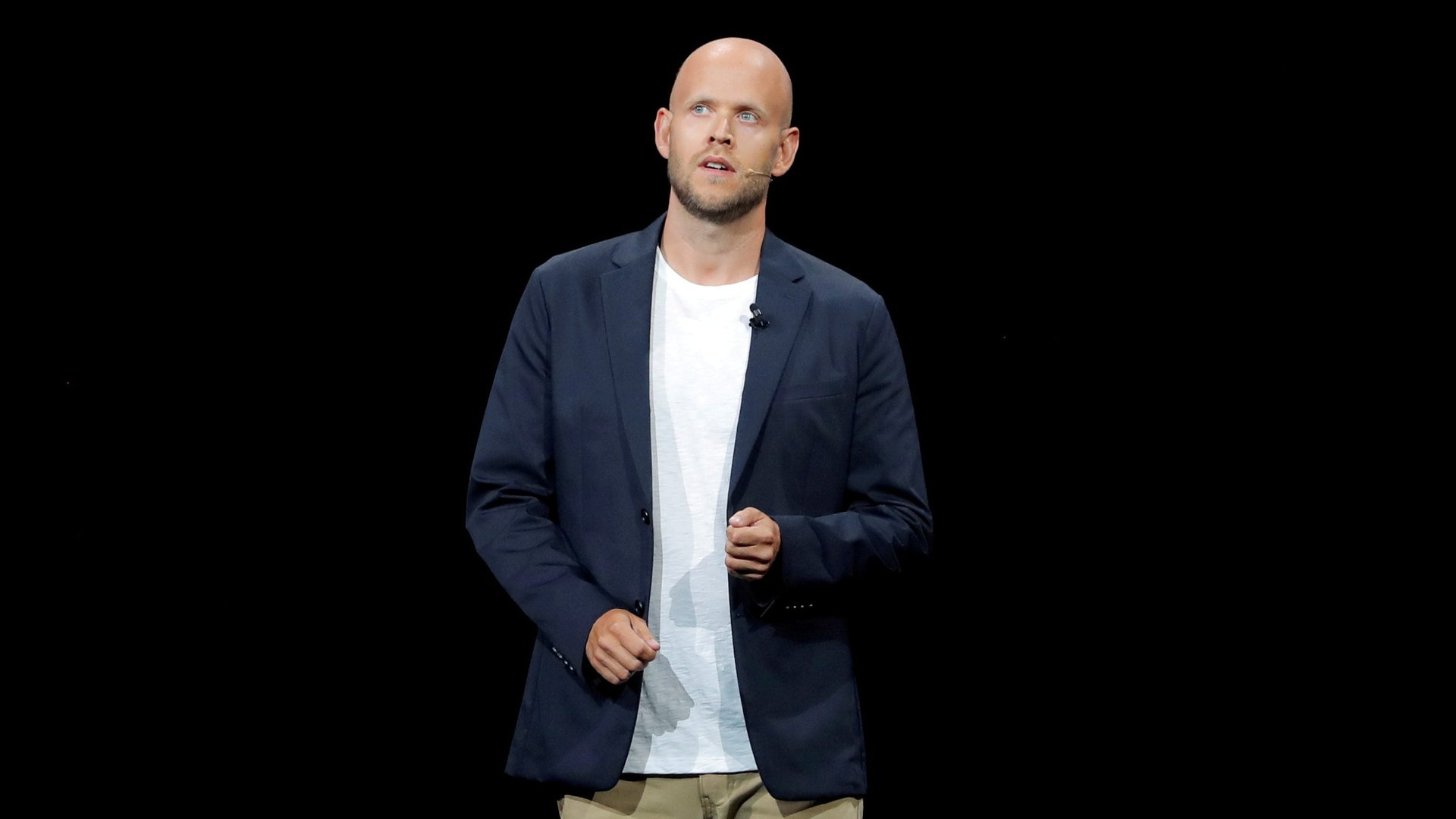What Spotify’s CEO was really telling employees in his memo about Joe Rogan
On Feb. 7, Spotify co-founder and CEO Daniel Ek wrote to his employees to explain how he views the evolving controversy involving its star podcaster Joe Rogan.


On Feb. 7, Spotify co-founder and CEO Daniel Ek wrote to his employees to explain how he views the evolving controversy involving its star podcaster Joe Rogan.
Artists including Neil Young and Joni Mitchell have pulled their music off of Spotify in protest against Rogan’s pushing of misinformation about the covid-19 vaccines. Then came the discovery of the former Fear Factor host’s frequent use of the n-word on his podcast. Ek, in a memo to staff, acknowledged employees’ concerns but doubled down on his support for The Joe Rogan Experience.
Ek’s letter is a classic non-apology, admitting no wrongdoing or carelessness. He urges employees to think about open debate, free speech, and the principle of elevating controversial voices.
What Ek fails to grasp, it seems, is that when you pay a podcaster $100 million to publish exclusively on your platform, you become somewhat responsible for what he says.
We’ve annotated Ek’s memo to Spotify employees
The full text of the memo is below.
Click each footnote for our helpful translation.
Spotify Team,
I know it is difficult to have these conversations play out so publicly, and I continue to encourage you to reach out to your leaders, your HR partners or me directly if you need support or resources for yourself or your team.
Daniel
Spotify has more to lose than the music of Neil Young and Joni Mitchell
Ek’s support for The Joe Rogan Experience continues despite the existence of 110 episodes featuring content that potentially broke Spotify’s own content policies. According to the website JRE Missing, which tracks the take-downs, the removed episodes featured guests like conspiracy theorist Alex Jones, Proud Boys founder Gavin McInnes, former Breitbart editor Milo Yiannopoulos, alt-right activist Charles C. Johnson, and the white supremacist Stefan Molyneux.
Rogan apologized for using the n-word in years past and said he agrees that “there’s no context where a white person is ever allowed to say that, never mind publicly on a podcast.” Ek, meanwhile, makes clear that the removal of the episodes was a choice by Rogan, and not by Spotify, which wants to avoid a “slippery slope” toward who knows what.
If Ek thinks Rogan and his podcast are acceptable, and anything goes on Spotify, then maybe he should just say so plainly. Employees, investors, artists, and other podcasters would be better suited to decide whether they want to stay or go.